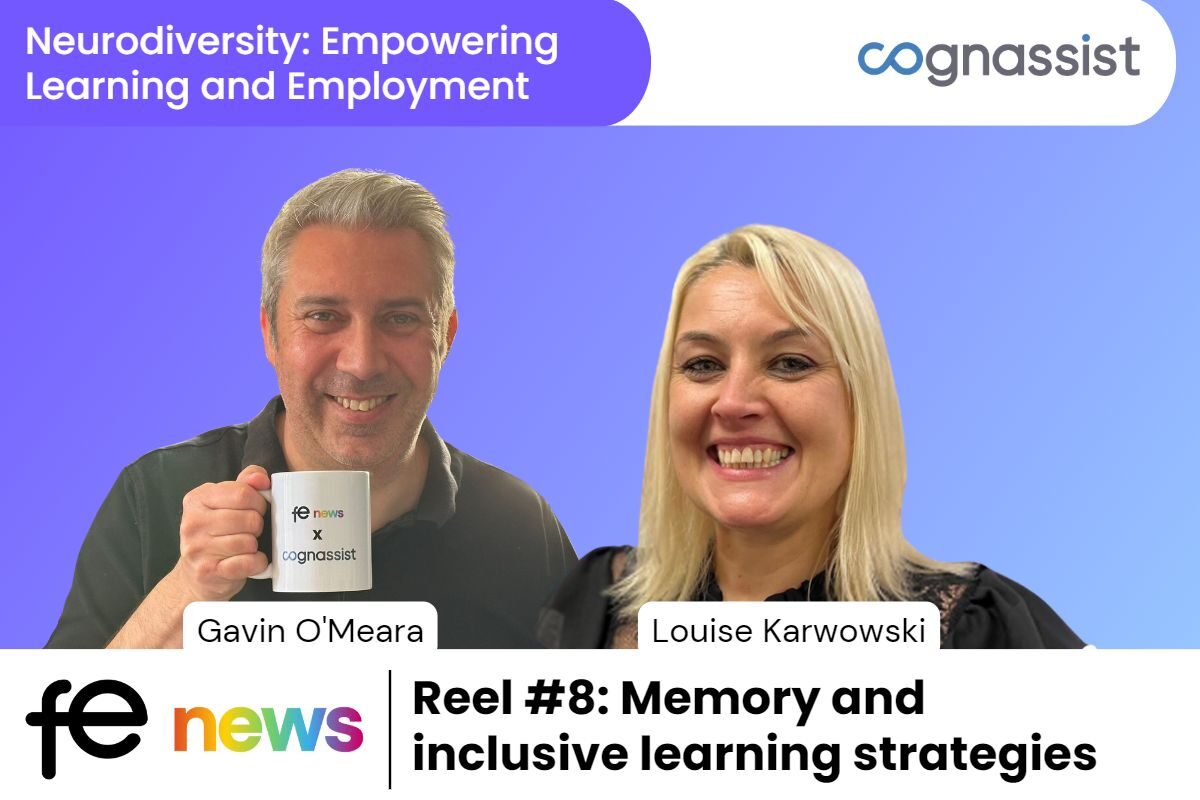Reel #8: Memory and inclusive learning strategies

How do we learn?
It’s sometimes amazing to think that people aren’t taught how to learn or the processes we use when we learn.
Reel #8 in this series on Neurodiversity: Empowering learning and Employment takes a look at exactly that – exploring learning mechanisms and some examples of what inclusive learning can look like.
You know the drill, as FE news’ Gavin O’Meara and Cognassist’s Dr Louise Karwowski bring you another weekly hit of neurodiversity knowledge.
This week, Gavin asks the question: what are the ways that people can support effective learning and retention for different thinkers?
And Louise breaks down the science and psychology behind how we learn, with:
- Different memory domains
- Speed of information processing
- How to solve problems and find answers
- Proven methods like Spaced Learning
Learning difficulties can interrupt some of these processes and make learning more challenging without support.
Every heard the phrase, ‘we all think and learn differently’?
If you know Cognassist, we say this a lot.
Our neurodifferences and how these can (but not always!) impact learning should be considered at every level of education, regardless of whether someone has a diagnosis or not.
And learning never stops.
How we learn impacts our approach to new tasks and ways of working throughout our lives and careers.
Not everyone can naturally build their own learning and coping strategies or copy others, so what are we doing to support learning and workplace skills when it doesn’t feel like it comes easy?
Proactive support needs to take a more flexible and personalised approach to learning.
Without it, learning becomes, at best, a frustrating process and at worst, traumatising.
Too often, people who experience neurological differences are either punished for not fitting into a system that isn’t designed for them or quickly learn to mask their difficulties at the expense of their mental health.
Education and workplace environments are certainly becoming more inclusive, but we still need to do better.
Understanding more about the fundamentals of learning and what we can do to adapt education environments will bring out the best in people.
It’s about setting everyone up for success. Whatever that looks like.
It’s our job to prepare people for the workplace and support learning and development through personalised skills progression. Building confident self-led learners and resilience – and it would surely make our first years of independence feel less like the Hunger Games out there!
Reel #4 was all about the benefits of neurodiverse talent. Organisations are crying out for diverse talent.
So how are you going to inspire and guide that talent to bigger and better things?
Check out all our episodes so far here.
Watch Reel 7 here:
Or listen to it on the go here:











Responses